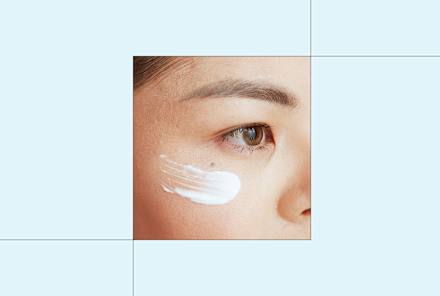Advertisement
Some Vitamin C Serums Can Trigger Irritation — Know This Before You Buy


If you're a fan of simple yet effective skin care routines, you probably know that potent actives are the gold standard when it comes to transformational skin care. We're talking chemical exfoliants, retinol, and today's star of the show: vitamin C.
Even the most no-fuss regimen can incorporate a vitamin C serum in the morning for the sake of antioxidant protection and skin brightening. However, if you make this common mistake, you may wind up with irritation and redness.
Why more potent vitamin C isn't always better
"Vitamin C is one of the few active ingredients that can benefit all skin types," says Elizabeth Tanzi, M.D., board-certified dermatologist in the Washington, D.C., metro area and associate professor of dermatology at George Washington University Medical Center.
When it comes to shopping for a vitamin C serum, you'll be met with a plethora of options, including a range of potencies. Those on the higher end may be labeled as "more effective," but that's not always the case.
There are many different forms of vitamin C used in these products, with L-ascorbic acid being the most potent yet also the most unstable. So if you put two and two together, a vitamin C serum with a high concentration of L-ascorbic acid might put you at risk for irritation.
As aesthetic physician Dr. Barbara Sturm, founder of her namesake line, previously explained on the Clean Beauty School podcast, this rule does not apply to supplements: "Vitamin C is a really great ingredient. As a supplement, if you do a high dosage, it won't hurt you. It's amazing and good for our immune system," she says.
"On our skin, however, a high dosage [can] destroy your skin barrier," Sturm says, which may visually manifest as redness, irritation, and heightened sensitivity. "A high dosage of L-ascorbic acid bombarding your surface of the skin is not a good idea," she adds (most notably if you have easily inflamed skin).
So if you previously subscribed to a more is more philosophy with vitamin C, now you know the risks. If vitamin C tends to break you out or cause sensitivity, opt for gentler versions or lower concentrations—here are a few of our favorite vitamin C serums to shop.
Or, if you'd rather opt for ingestibles that will benefit your full body (skin included), reach for a vitamin C supplement. L-ascorbic acid generally doesn't have the same tolerability issues in supplements. In fact, high-potency vitamin C supplements are often even better, contrary to topical products. Just make sure you choose a formula with a high-quality dose, source, and bioactive form.
Not sure where to find such high-potency formulas? Here's our curated list of the best ones on the market right now to give you a head start.
The takeaway
Vitamin C is a staple ingredient for all skin types. When you're shopping for a vitamin C serum, you may want to look for lower percentages in L-ascorbic acid to prevent irritation.
On the flip side, when shopping for vitamin C supplements, look for high-potency products. Want to dive deeper into the benefits of adding vitamin C to your diet? Here are six major pros you should know.


















